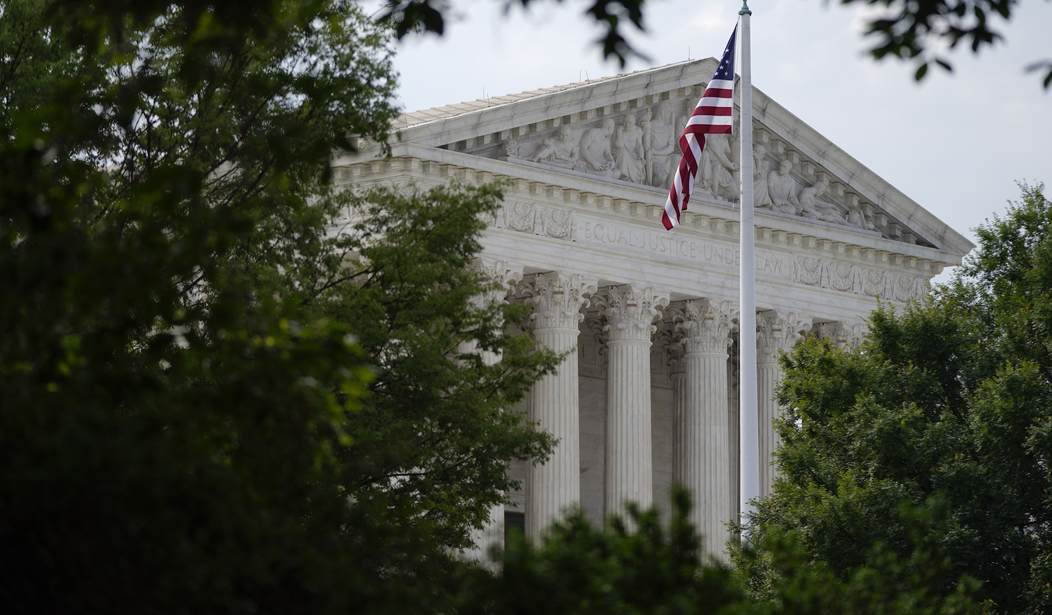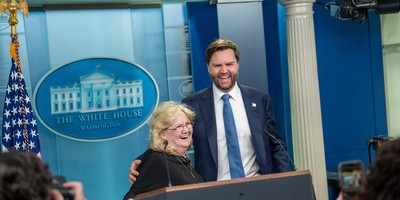The U.S. Supreme Court begins hearing cases for its new term, following its customary summer recess, on Monday, Oct. 3. If this Court term is anything like the most recent one, conservatives and constitutionalists will rejoice. In this most recent term, conservatives achieved secured massive wins on abortion (Dobbs v. Jackson Women's Health Organization), gun rights (New York State Rifle & Pistol Assn. Inc. v. Bruen), and religious liberty (Carson v. Makin and Kennedy v. Bremerton School District), and another key win on rolling back the administrative state (West Virginia v. EPA).
Now, with such grotesque precedents as Roe v. Wade and Lemon v. Kurtzman properly overturned, will the Court continue to move rightward? Put another way, was the 2021-2022 Supreme Court term a mere blip on the radar, or the beginning of a broader, meaningful conservative legal restoration?
While it is unclear, and there are fewer "culture war"-centric cases on the docket this term than there was the last term, there is still reason for cautious optimism in some of the marquee impending cases.
The biggest cases before the Court this term, perhaps by far, are the two cases about noxious race-conscious affirmative action admissions policies at universities: Students for Fair Admissions Inc. v. President & Fellows of Harvard College, which will apply to private universities, and the sister case of Students for Fair Admissions Inc. v. the University of North Carolina, which will apply to public universities. The two cases had been "consolidated" together, meaning they were to be decided in unison, before then being "de-consolidated" to permit Justice Ketanji Brown Jackson -- who will have to recuse herself from the Harvard case -- to participate in at least one of them. But the legal issues are effectively identical, so the two cases should come out the same way.
The Court most recently upheld race-conscious university admissions policies in the 2003 case of Grutter v. Bollinger, in which Justice Sandra Day O'Connor's majority opinion explicitly stated that "race-conscious admissions policies must be limited in time," and added that the "Court expects that 25 years from now, the use of racial preferences will no longer be necessary to further the interest approved today." In fact, not only did the Grutter Court presciently telegraph its own ruling's possible demise in the twin SFFA cases, but affirmative action is also one rare area where even Chief Justice John Roberts has shined as a voice of sanity. After all, Roberts joined Justice Samuel Alito's anti-affirmative action dissent in 2016's Fisher v. University of Texas, and earlier penned perhaps his most famous line in the 2007 race-conscious education case of Parents Involved in Community Schools v. Seattle: "The way to stop discrimination based on race is to stop discriminating based on race."
Recommended
There is thus a very strong chance the Court finally ends vile affirmative action policies -- which, contra Black Lives Matter propaganda, represent the genuine last remnants of "systemic racism" in America -- this term. The ultimate cherry on top would be if Justice Clarence Thomas, a long-time archfoe of race-conscious admissions policies, writes the majority opinions in the two SFFA cases, formally overturning both Grutter and 1978's Regents of the University of California v. Bakke and thus sending "systemic racism" to the ash heap of history. Hopefully, he gets that opportunity.
The other big "culture war" case in this term is a First Amendment/religious liberty-adjacent case out of Colorado: 303 Creative LLC v. Elenis. Sound familiar? It should: The Court ruled on a similar First Amendment/religious liberty case out of Colorado just five terms ago, in Masterpiece Cakeshop v. Colorado Civil Rights Commission. But in Masterpiece Cakeshop, the Justice Anthony Kennedy-led Court majority issued an extremely narrow ruling that redounded Christian cake baker Jack Phillips' case-specific free exercise interest but failed to render a constitutionally meaningful judgment about the thorny intersection of nondiscrimination law, freedom of speech, and freedom of religion.
The fact that the Court granted certiorari in 303 Creative LLC and opted to hear the case, especially coming so soon after Masterpiece Cakeshop and due to the Court's notable personnel changes since 2018, strongly suggests that the Court is prepared to issue a more sweeping ruling. Here, that would entail ruling in favor of Lorie Smith's claim that her creation of a wedding planning website is constitutionally tantamount to "pure speech" -- and that her website's commercial activity thus falls under the First Amendment's strong protective ambit.
Tenth Circuit Judge Timothy Tymkovich wrote a powerful and inspiring dissent last year when this case reached his appeals court panel; that dissent could, and should, serve as a template for the Supreme Court's majority opinion. Such a majority opinion in 303 Creative LLC would represent the Court's long-overdue constitutional validation of religious dissenters' claim, at least on compelled speech doctrine grounds, from the oppressive forces of "wokeism" and gender ideology. A similarly definitive pro-religious liberty ruling on the intersection of nondiscrimination law and free exercise of religion -- in particular, the possible overturning of the contested 1990 case, Employment Division v. Smith -- will still wait for another day.
There is less red meat on the docket this Supreme Court term than there was the last term, but there is still plenty ahead to look forward to. Above all, the demise of the monstrosity that is modern America's racist affirmative action regime would be an epochal step in bringing America closer in line with her noble, race-neutral Founding ideals.
To find out more about Josh Hammer and read features by other Creators Syndicate writers and cartoonists, visit the Creators Syndicate website at www.creators.com.
























Join the conversation as a VIP Member